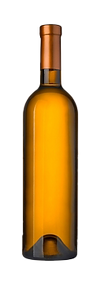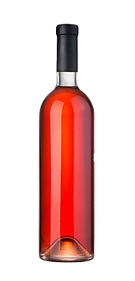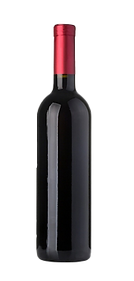


Thanks to the Convenience Industry Council of Canada's (CICC) advocacy efforts, effective September 5th, 2024, licenced convenience stores are permitted to sell beer, wine, and ready-to-drink (RTD) alcohol products. Interested stores need to meet certain eligibility requirements and have 4,000 square feet or less of retail floor space.
If you meet the criteria, you can apply for a Convenience Store Licence using the self-service iAGCO portal. Licences are required to place an order with the LCBO.
CICC has put together a resource guide to help you navigate the process.
KEY RETAILER RESOURCES
Alcohol and Gaming Commission of Ontario (AGCO) Resources
Liquor Control Board of Ontario (LCBO) Resources



TRAINING: CICC SABR
The AGCO has five approved retail training programs, including CICC’s ID Please SABR. These programs are approved for retail licensees and employees involved in the sale, service, and delivery of liquor, or taking orders for the sale of liquor, at a licensed retailer like a convenience store. ALL store staff need to be trained by one of these, not just the license holder.
ID Please SABR is tailored to the industry, has a digital certificate, and allows employees to complete at their own pace in about one-hour. The cost-effective program allows them to responsibly handle the sale, service, and delivery of alcohol.

RETAIL SALE HOURS
Stores can sell beverage alcohol in Ontario between 7:00 a.m. to 11:00 p.m. Outside of the permissible hours, licensees may choose to lock the refrigerators in which the products are located, create a partition around the display aisles, or lock the point-of-sale system to disallow the sale of beer, wine (including cider) and ready-to-drink beverages. It is a convenience store licensee’s responsibility to properly display the beer, wine (including cider) and ready-to-drink beverages that are offered for sale. Beer and cider (if sold) must be displayed in one single contiguous product display area and cannot be displayed in multiple locations throughout the store (e.g. beer cannot be displayed in aisle 1 and cider in aisle 10). Wine, excluding cider, must also be displayed in a single contiguous product display area. Similarly, all ready-to-drink beverages must be displayed together. There are no restrictions on the size of the area. Beer, wine (including cider), and ready-to-drink beverage inventory that is not on display to customers must be stored in a secure area that is not accessible to the public.




SHELF SPACE REQUIREMENTS
As part of the new framework, at least 20% of the containers of beer, cider, and RTDs on display must be produced by small breweries, cideries, or small distilleries. At least 10% of the containers of wine, excluding cider, on display are containers of wine produced by small wineries. Additionally, at least 40% of containers of wine, excluding cider, on display in convenience stores are containers of wine that are produced using grapes from a single country and in respect of which at least one of the following criteria is being met: the wine is VQA; the wine was produced by a small winery; the country where the grapes were grown produces, in the aggregate, less than 150 million litres of wine annually from grapes grown in that country.

You may not advertise beverage alcohol with, or display beverage alcohol in close proximity to, energy drinks or any other products that may promote the immoderate consumption of beverage alcohol.
It is a convenience store licensee’s responsibility to properly display the beer, wine (including cider) and ready-to-drink beverages that are offered for sale. Beer and cider (if sold) must be displayed in one single contiguous product display area and cannot be displayed in multiple locations throughout the store (e.g. beer cannot be displayed in aisle 1 and cider in aisle 10). Wine, excluding cider, must also be displayed in a single contiguous product display area. Similarly, all ready-to-drink beverages must be displayed together. There are no restrictions on the size of the area.
Beer, wine (including cider), and ready-to-drink beverage inventory that is not on display to customers must be stored in a secure area that is not accessible to the public.



ADVERTISING RULES
As a convenience store license holder, you can advertise beer, wine, cider or ready-to-drink beverages with other non-alcoholic beverages or food items. You can also advertise that you sell these products, and the types of brands and prices sold in the store. You are allowed to advertise discounts or seasonal ‘deals’ if you are abiding by the minimum retail pricing guide. However, you cannot run promotions which require customers to purchase beverage alcohol products as a requirement or condition for getting free or discounted merchandise.
Stores are allowed to use physical advertisements (such as posters, banners, aisle markers, and end caps) and promotional flyers or handouts. You can also have digital advertising (social media or websites) and utilize television and radio advertisements. If alcohol is sold online on the licensee’s website, beverage alcohol advertisements must be contained only within the dedicated section of the website or application where beverage alcohol is being sold.
SIGNAGE REQUIREMENT
Post your liquor licence and warning sign for consumption of liquor during pregnancy (Sandy’s Law)
The liquor licence and control act requires convenience retailers to post their AGCO liquor licence in addition to a warning sign that cautions consuming liquor during pregnancy is the cause of fetal alcohol spectrum disorder.




Monetary Benefits
Compensation from manufacturers for discounts, rebates or promotional funds.

Exclusivity
Restricting sales of the manufacturer’s products to only their store in return for any kind of benefit from that manufacturer.
INDUCEMENTS/TRADE SPEND
Stores can work with beverage alcohol manufacturers when advertising and promoting beverage alcohol products in their stores. However, licensees are not allowed to accept any kind of benefit or inducements. According to the AGCO, a ‘benefit’ could be financial/monetary or non-financial (e.g., a fridge).
Examples of prohibited/forbidden inducements or trade spend include, but are not limited to:

Shelf Space
Giving the manufacturer’s products special or exclusive placement in their store in return for some kind of benefit from that manufacturer.

Product Listings
Requiring or accepting payment for the purpose of including the manufacturer’s products in their inventory.

Promotional
Activities
Receiving compensation from a manufacturer for merchandising, marketing or promotional activities (including loyalty programs or reward marketing programs which are receiving direct or indirect monetary benefits from a beverage alcohol manufacturer).

Physical
Improvements
Receiving financial or other support from a manufacturer to complete renovations to a licensee’s store, lighting, furniture etc.

Equipment
Receiving refrigeration equipment, including coolers, or other equipment for free from a manufacturer, or sold by a manufacturer with conditions related to the sale of their products (such as exclusivity) in the store.

Services
Stocking products on shelves for the licensee.

Licensees are allowed to offer manufacturers’ promotions to customers in which a value-added item may be included with a purchase of a beverage alcohol product, provided on the condition that the item is of a nominal value compared to the retail price of the beverage alcohol product.
ENFORCEMENT
The AGCO handles all enforcement and has increased staffing to check compliance and enforce the rules. AGCO has increased its inspection capacity by about 25 percent to monitor the safe and responsible sale of alcohol by licensees in the expanded liquor retail marketplace.
AGCO inspectors may conduct inspections on the following:
-
Selling or supplying liquor to individuals who are, or appear to be, under the age of 19;
-
Selling liquor to anyone who is, or appears to be, intoxicated;
-
Selling or supplying liquor (beer, wine (including cider) or ready-to-drink beverages) outside of permissible hours;
-
Selling or supplying liquor (beer, wine (including cider) or ready-to-drink beverages) not purchased from the LCBO (considered illegal liquor); and
A violation of the Act, its regulations, or the standards and requirements established by the Registrar may result in a warning, an order of monetary penalty, suspension or revocation of your licence. In addition, local police may lay charges.

